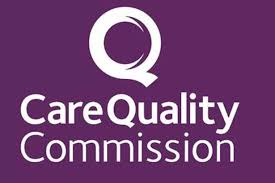When dealing with regulated industries, it’s important as a business or SEO agency to ensure your strategy is extra vigilant and appropriate for use on a company’s website, especially if you’re an e-commerce site selling goods online. With industries that are highly regulated, there are lots of legalities and rules that must be followed to ensure a company remains respectable and reputable.
A single mistake in written content could have disastrous results for a regulated company, leading to hefty fines, bans, and even legal action.
In this blog, we’ll give you some helpful tips on successfully implementing SEO for regulated industries.
What are some regulated industries?
A regulated industry is a term for businesses that operate under rules set out by the government. To give you an idea of what we mean, we’ve included some industry examples and explained how they are regulated.

Companies involved in the sale of alcohol or tobacco have to be careful with how they market their products. Laws on the marketing of cigarettes are very strict, and alcohol and tobacco products are only allowed to be sold to those over 18.

The Bank of England and the FCA regulate the finance industry in the UK and have established many laws and rules to ensure the safety of consumers. Everything from loans to savings and interest rates are heavily regulated.

Healthcare and pharmaceutical companies must adhere to the standards set out by multiple organisations including the Quality Care Commission and The Health and Safety Executive.
What challenges do SEO agencies face with regulated industries?
Whilst every industry is different and has its own rules and regulations, these are some of the general top challenges you’ll need to overcome when producing SEO content for regulated businesses.
Compliance
The main challenge is ensuring that content adheres to the various requirements of regulatory bodies. From the FCA in finance to the QCC in healthcare, each organisation enforces firm rules on its industry and has strict guidelines on how services and products can be marketed.
As such, content writing cannot be approached with the same strategy it usually would, and it can become difficult to find suitable keywords, technical terms, and an appropriate tone for specific companies.

I asked Content Writer Cara Dudgeon whether the approach to writing changes when working with regulated industries:
“Yes. We have a compliance content checklist for this exact reason.
We must be careful in our language and adhere to strict marketing material policies that many regulated industries are instructed to follow.
Some examples can include avoiding biased language, persuasive techniques and ensuring no misleading information is used.”
Long approval periods
Content sent to regulated clients often has a longer approval time because there are often several checks needed. Writers may not know legal terms or requirements and must wait for the client to fill these in. The client must then proof all the content and ensure everything stated is fit for approval and publishing
This can significantly delay the uploading process and make it difficult to stay on top of current trends.
High stakes
The consequences for non-compliance can be severe and this can cause added pressure on SEO teams to perform. With the risk of Google penalties, fines, lawsuits, and reputation damage if clients break rules or go against guidelines it’s essential to ensure you’re on high alert and become a source of trustworthy content for a client.
If a business has been hit by Google penalties, you’ll be relieved to know there are steps you can take to rebuild your rankings with Google penalty recovery services.
How can I overcome SEO challenges in regulated industries?

If you’re aware of the challenges and consequences involved with heavy regulation, it’s easy to feel overwhelmed and not know where to start strategising. To help your SEO succeed in regulated industries, we’ve created some key tips and tricks to keep in mind as you create your content.
Detailed research on the industry and competitors
Find out as much information as possible on the topic or industry you are working with. Make sure you are aware of the key compliance issues and biggest regulations in each industry. From here you can structure your content with SEO best practices that conform to the requirements you have identified.
Competitor analysis is always something you should utilise in SEO, but it is a specifically helpful tool for understanding what to include in your content for regulated industries.
Take a look at how competitors are implementing SEO into their content what rules they are following and strategies they are avoiding. This will give you a good indication of how to angle your own content to avoid sensitive or banned information whilst still producing well-optimised copy.
Work with compliance teams
Collaboration is the key to success in many cases and ensuring you’re working with compliance teams is crucial.
Work with compliance to ensure that any content is carefully checked and any requirements are followed before work is passed over to the client. This will not only ensure your work is error-free but encourage a trusting relationship between you and the client.
Strategise your SEO
Due to the sensitive nature of many of the industries you’ll be working with, you might not be able to fully implement the SEO practices you’re used to. Things like trademarked keywords and regulations on certain phrases or statements mean that you will have to strategise to find a solution that increases search visibility whilst still conforming to industry standards.
Effectively plan your strategy, keyword research and writing around each client and making compromises on some areas of SEO in order to increase visibility in other areas. This is the key to succeeding in boosting visibility for regulated industries.
Master SEO challenges with Embryo
The easiest way to ensure you stay on top of the SERP rankings, no matter what challenges you face, is to utilise SEO experts like the ones here at Embryo. Our dedicated Organic team have a wide range of expertise and experience in producing winning results for regulated industries across the UK.
Whatever industry you’re in, we’ll be able to carefully construct an SEO strategy that will boost your online presence whilst keeping your business safely in line with tight rules and regulations.
FAQs
Answered by our SEO team
Does having a highly regulated domain negativly impact my SEO?
If your industry is highly regulated, you’ll naturally be under more scrutiny from Search Engines. This is to protect customers in industries that are higher risk (for example if they’re involved with Health of Finance). You may find you have to work harder to be competitive, but it will be worth the investment.
Is it more expensive to have an SEO strategy for highly regulated industries?
Normally, yes. SEO is a game of relative measures, so if you’re in a competitive market you have to make sure you’re matching their efforts. With this comes more work, resource and ultimately costs associated with delivering the SEO strategy.
Are there any laws surrounding SEO?
Yes. You must abide by your Search Engines’ terms of service, ensure you’re not infringing trademarks (i.e. with images) and your content is following E-E-A-T guidelines to not misinform customers or misrepresent yourself as a business.
What are examples of Google penalties?
The two most significant Google Penalties were: Penguin (a penalty targeting websites with poor link-building practices) and Panda (a penalty targeting websites with thin or poor-quality content)












